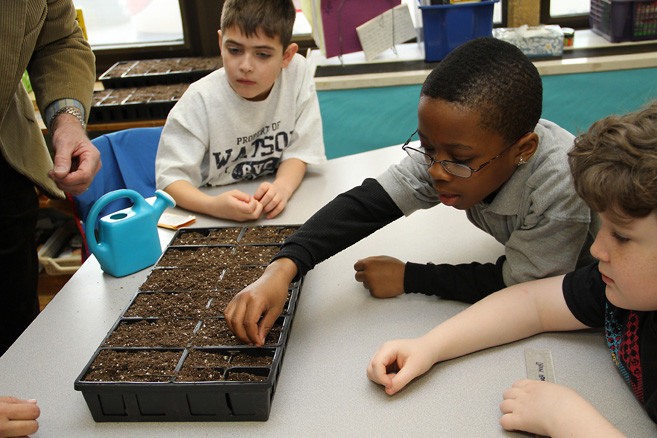Rockville Centre students are trying to preserve the king's reign
Watson third graders are studying — and working to help — a colorful creature
“The King of Butterflies” is in potential danger of becoming extinct.
At Floyd B. Watson Elementary School, the fight is on to keep them in the Earth’s environment for years to come.
Part of the third grade curriculum across New York state is the study of these lively insects, more commonly known as the Monarch butterfly, whose days might be numbered. The Monarch is one of North America’s most popular and beloved butterflies, known for the orange-and-black pattern on its wings. It is not an endangered species yet, but it could be some day if their population continues to dwindle.
As part of a worldwide effort to protect these colorful butterflies, animal protection and education groups are setting up waystations that can supply natural and viable habitats for them to flourish throughout the United States in the future.
Around the country —and especially in Rockville Centre at Watson and at other public schools across the state — students are also contributing to the cause, by helping to set up their own butterfly waystation projects.
“It’s important to let kids know that they can change the world,” said Melissa Rice, who along with fellow third grade teacher Sarah Henyan is overseeing the project. “Anytime you can empower an eight-year old, that’s great.”
Tom Hodge, a retired principal and former schoolteacher who lives in Rockville Centre, is lending his help to the effort, as well. Hodge is now a volunteer educator, and he secured a $500 grant from Rockville Centre’s Astoria Federal Savings Bank branch to finance the planting of milkweeds — the host for the butterflies. The branch’s regional manager, Joseph Arevalo, accepted the application Hodge wrote in February.
On March 9, third graders planted several milkweed seeds into dirt-filled flats outside the perimeter of the school where the plants will germinate over the next two months. The project will carry over into next year when the third graders will reach fourth grade, at which time they will continue to raise their plants — and the butterflies.
“This is a two-year assignment,” said Rice. “And the students are so excited and curious to see what happens along the way.”

 63.0°,
Partly Cloudy
63.0°,
Partly Cloudy 







